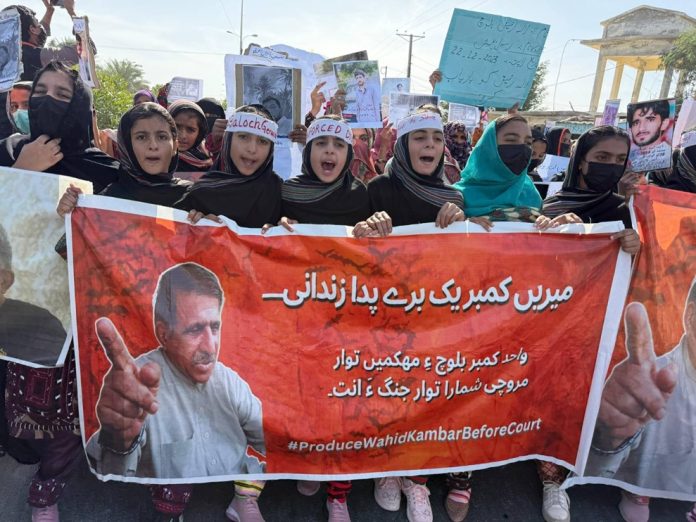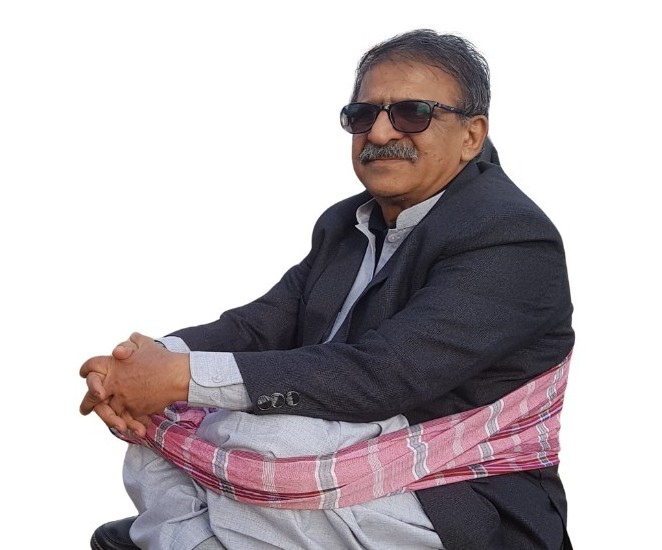
Bravery often begins with the influence of one’s father. My father, Wahid Qamber, has been the cornerstone of my strength and struggle. Though I was an average student, his encouragement kept me going and excelling in my filed. A deeply family-oriented man with strong values, he connected us to our roots. His goal-oriented mindset and unwavering commitment define his character. He has always honored his responsibilities, never backing down from challenges, and has been a guiding force in my journey.
Ustad Wahid Qamber has always spread positivity in his surroundings, remaining steadfast in his path and objectives. Beyond being a political activist, he was a deeply knowledgeable and respected political figure. His personal library, filled with books of international standards, reflected his intellectual depth and commitment to learning.
Ustad Wahid Qamber was an epitome of true nationalism, dedicating his entire life to the national cause. When he was abducted and imprisoned last time, he was released and acquitted of all charges. When he reunited with us, he shared a poignant truth: “It is better to embrace death than to endure the inhumane torture of secret agencies’ cells.” His resilience and words continue to inspire those who fight for justice and freedom.
My father Ustad Wahid Qamber knew that his relentless struggle and unwavering determination for the Baloch national cause would eventually lead him to the same fate. Yet, his love for his motherland surpassed every fear and personal cost. His dedication to the cause remained unshaken, a testament to his courage and profound commitment to his people and their freedom.

In his early 20s, as a young, educated graduate from Karachi University, he sacrificed a promising educational and professional career for the national cause. An advocate of religious secularism, he prioritized Baloch nationalism above all else. He once recounted how, during a hostel debate over sectarian differences, he urged students to focus on Baloch politics instead of divisive religious disputes. This approach fostered a genuine sense of nationalism in us rather than imposing it. Moreover, Abba Jan remains a steadfast supporter of women’s empowerment.
He rejected all forms of gender bias, actively challenging traditional stereotypes. Abba Jan willingly participated in household chores and never burdenised women of our family to do all domestic chores. He also encouraged my male cousins to support their female counterparts. On one occasion, he woke a younger cousin to make tea, emphasizing shared responsibilities. Through his actions, he consistently demonstrated his commitment to equality and rejected harmful societal norms.
Although Abba Jan is no longer physically with us, his unwavering support and encouragement remain deeply ingrained in our lives. His understanding nature meant he never imposed his decisions on us but instead granted us the freedom to choose and make our own paths. Today, the absence of such a towering national ideological figure, who dedicated his entire life to the national cause, is profoundly felt. Despite his abduction, the silence surrounding his plight is deafening. We have filed a writ of habeas corpus in the Balochistan High Court and demand that this man of immense value be presented before the Court of Law.
Pakistan, as a signatory to the Universal Declaration of Human Rights (UDHR), is obligated to uphold principles such as the right to a free and fair trial. I firmly demand that my father be presented before a court and granted the constitutional right to a fair trial, as guaranteed under Pakistan’s Constitution of 1973. It is imperative for Pakistan to honor its commitments under international law and its own constitution to ensure justice and the rule of law.
